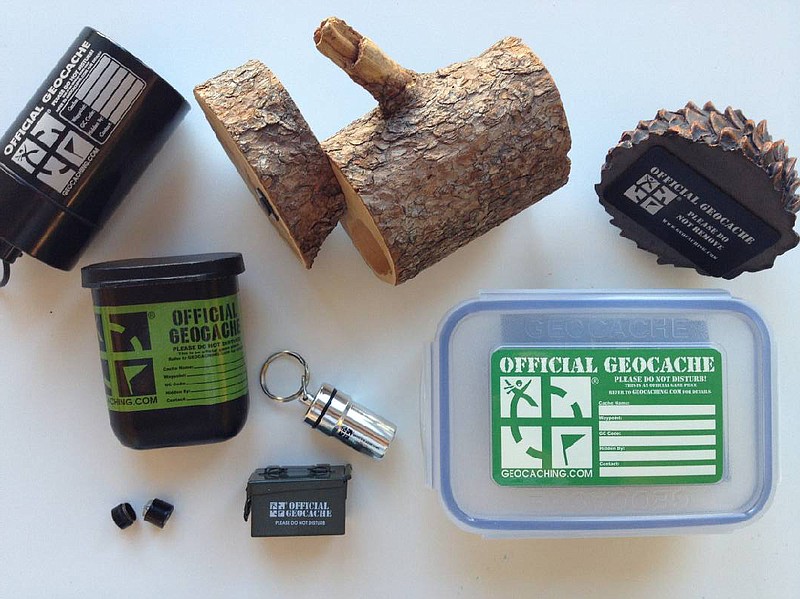View other columns by Mark Kennedy
Our 10-year-old son has discovered geocaching, which is treasure hunting without any actual "treasure."
It started, as our younger son's obsessions normally do, with an innocent question: "Daddy, can I get a new app on your phone?"
If I am distracted - for example, watching televised sports or "Meet the Press" - there is a good chance I will say "yes."
But if I have my wits about me, I dig a little deeper.
"What kind of app, and what does it cost?" I asked.
"Well, first of all, it's free," he assured me. "And it's called geocaching."
I learned that "caching" is pronounced "cashing." "Geo," meanwhile, means Earth, and "caching" refers to the act of "processing or storing materials."
I had a vague memory of this fad cresting about a decade ago, when people used GPS devices to look for things hidden in the woods. I imagine it was invented by the makers of poison ivy products.
Then some years later, we had the summer of Pokemon Go!, a game similar to geocaching, except players, using their cellphones, searched for digital creatures instead of tiny containers.
According to geocaching.com, there are some 3 million geocaching enthusiasts worldwide, hunting about 2.8 million geocaches - let's call them "treasures" - which are hidden randomly in tiny waterproof capsules that look like something movie villains might use to hide the nuclear launch codes.
Soon after securing the app, my wife and son went in search of their first geocache treasures.
I was dubious that they would find anything. However, about an hour into their search I heard my phone "ding" and lifted it to see a texted photo of my son holding something that looked like bait on the end of a fishing line.
Actually, it was a geocaching capsule tied to a string and suspended from a magnet that my son and his mom uncovered inside a fence pole outside a community center about a mile from our house.
"What is that?" I texted back.
"It's a capsule with a note inside where you write your name," my wife explained.
"Wow," I said. "Good luck finding another one."
For several days, the geocaching obsession grew. One day last weekend, the boy navigated us to an area near Chickamauga Lake where we searched - unsuccessfully - for a treasure he was convinced was hidden in the support beams of a street sign.
This misadventure would ultimately cost me.
My son discovered that for a mere $6 a month we could get the super-duper geocaching app that would give us access to more and bigger treasures.
I only agreed after he promised to pay for the service, and my wife assured me that she knew how to shut the subscription down.
The next day, he and his mom found a treasure near a real estate office. Next, they went tramping through a wooded area near a Signal Mountain neighborhood where they found a larger 10-year-old "treasure" in a box. Sadly, the note inside had been rendered illegible by a decade of rain.
Now, our son wants to graduate from treasure hunting to treasure hiding. He already has a place picked out near a community wishing well.
It's fun to watch his mind work. The idea that he can check back at intervals to see how many people find his treasure is irresistible to him.
Listening to him talk, I feel stirrings of the former 10-year-old boy inside me. I suddenly remember burying "time capsules" in our backyard, Sucrets lozenges tins filled with baseball cards and plastic Army men.
I imagined them being opened by little boys in the future who would ne delighted by the free gifts from 1968.
See, when you are 10, time only points in one direction. Forward.
This is the real hidden treasure of youth.
Contact Mark Kennedy at mkennedy@timesfreepress.com or 423-757-6645.

